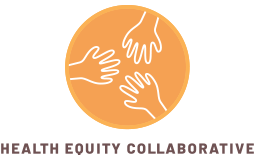21 Apr Celebrating National Minority Health Month with Federal Action
Every April, Americans observe National Minority Health Month. But this year, there’s more to celebrate than usual.
That’s because, on April 14th, the White House announced a sweeping plan to address the healthcare challenges that disproportionately affect minority communities. President Biden’s Equity Action Plans will direct over 90 federal agencies to tackle long-standing disparities.
For instance, the Department of Health and Human Services will seek to eliminate language barriers in health care, increase outreach to communities of color to boost enrollment in free and low-cost insurance plans, and address the maternal mortality crisis that disproportionately affects Black and Native families. HHS Secretary Xavier Becerra decried the ongoing disparities, but committed to solving them, noting that “extensive evidence tells us we have more work to do to ensure that all communities HHS serves have the opportunity to access and experience optimal health and wellbeing.”
The Department of Housing and Urban Development, meanwhile, announced a plan to reduce the racial homeownership gap and advance equity in delivering homelessness assistance programs. “Equity is central to HUD’s founding principles and the daily work we do as a department,” said Secretary Marcia L. Fudge.
The Department of Education, for its part, announced plans to make higher education more accessible by investing in historically Black colleges and universities, tribally controlled colleges and universities, “minority-serving institutions” that enroll a high share of students of color, and community colleges. They also promised to support K-12 and postsecondary institutions by including funding, guidance, and technical assistance to help students disproportionately impacted by the pandemic.
And the Social Security Administration will use data to address systemic barriers to participation in safety net programs, ensure equitable service delivery for those navigating the disability application appeals process, and increase access to research grants for Minority Serving Institutions.
These are real, and greatly needed, long-term plans. “Advancing equity is not a one-year project — it is a generational commitment,” the White House acknowledged.
Successfully implementing these plans will take an enormous amount of effort and resources — and there will surely be road bumps along the way. But the fact that we have an administration so committed to ending healthcare disparities is, itself, cause for celebration this National Minority Health Month.


